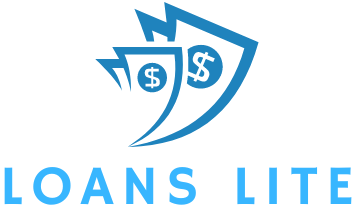Graduate Student Loans: Navigating Your Path to Higher Education
Graduate school is an exciting next step for many students seeking to advance their education and career prospects. However, the cost of obtaining a graduate degree can be a significant barrier. Graduate student loans are often essential in making this investment in your future more accessible. In this guide, we’ll explore the ins and outs of graduate student loans, from the types available to the best strategies for managing your debt. Whether you’re just starting to consider graduate school or are already enrolled, this article will provide valuable insights to help you make informed financial decisions.
Understanding Graduate Student Loans: What Are They?
Graduate student loans are loans specifically designed to help students pay for their education beyond the undergraduate level. These loans can cover tuition, fees, books, and even living expenses, allowing you to focus on your studies without the immediate stress of covering these costs out-of-pocket. Unlike undergraduate loans, graduate loans typically come with different terms, interest rates, and repayment options, tailored to the needs of students pursuing advanced degrees.
Types of Graduate Student Loans
When it comes to funding your graduate education, there are several types of loans to consider. Each comes with its own set of advantages and considerations:
- Federal Direct Unsubsidized Loans: These are the most common type of federal loans available to graduate students. They are not need-based, meaning you don’t have to demonstrate financial hardship to qualify. However, interest begins accruing as soon as the loan is disbursed, and you’ll be responsible for paying all the interest.
- Federal Direct PLUS Loans: Also known as Grad PLUS Loans, these loans allow you to borrow up to the full cost of your education, minus any other financial aid received. PLUS loans require a credit check, and the interest rates are typically higher than unsubsidized loans, but they offer more borrowing power for those who need it.
- Private Graduate Student Loans: If federal loans don’t cover all your expenses, private student loans from banks, credit unions, or online lenders can fill the gap. These loans often require a good credit score or a co-signer, and their interest rates can vary widely. It’s essential to shop around and compare offers to ensure you get the best terms.
- Institutional Loans: Some universities offer their own loan programs to graduate students. These loans may have favorable terms, such as lower interest rates or more flexible repayment options, so it’s worth checking with your school’s financial aid office to see what’s available.
How to Apply for Graduate Student Loans
The process of applying for graduate student loans is similar to that for undergraduate loans, but with some key differences. Here’s a step-by-step guide to help you navigate the application process:
- Complete the FAFSA: The Free Application for Federal Student Aid (FAFSA) is your first step. This form determines your eligibility for federal student loans, grants, and work-study programs. Make sure to fill it out as early as possible to maximize your financial aid options.
- Review Your Financial Aid Package: After submitting the FAFSA, you’ll receive a financial aid package from your school. This package will outline the federal loans and other financial aid you’re eligible for. Review it carefully to understand your options.
- Consider Private Loans: If your federal loans don’t cover all your expenses, explore private loan options. Compare different lenders, interest rates, and repayment terms to find the best deal for your situation.
- Apply for Loans: Once you’ve decided on the loans you need, follow the application process for each loan type. For federal loans, this usually involves signing a Master Promissory Note (MPN). For private loans, you’ll need to complete the lender’s application process, which may include a credit check.
- Accept and Disburse Funds: After your loan applications are approved, you’ll need to accept the funds. For federal loans, the money is typically disbursed directly to your school to cover tuition and fees, with any remaining funds released to you for living expenses.
Managing Graduate Student Loan Debt
Taking on debt for graduate school is a significant commitment, and managing it wisely is crucial to your financial health. Here are some strategies to keep your debt under control:
- Borrow Only What You Need: It can be tempting to borrow the maximum amount offered, but remember that loans need to be repaid with interest. Carefully calculate your actual expenses and borrow only what is necessary.
- Consider In-School Payments: Many lenders offer the option to make interest-only or small fixed payments while you’re still in school. This can help reduce the overall amount of interest that accrues on your loans, saving you money in the long run.
- Explore Loan Forgiveness Programs: Depending on your career path, you may be eligible for loan forgiveness programs, such as Public Service Loan Forgiveness (PSLF) or Teacher Loan Forgiveness. These programs can forgive a portion or all of your federal loans if you meet specific criteria.
- Choose the Right Repayment Plan: Federal student loans offer several repayment plans, including income-driven repayment (IDR) plans that base your monthly payments on your income. Selecting the right plan can make your payments more manageable.
- Refinance If Needed: If you have high-interest private loans, refinancing might be an option to lower your interest rate and reduce your monthly payments. Just be aware that refinancing federal loans into a private loan means losing access to federal protections, like income-driven repayment plans and loan forgiveness programs.
The Impact of Graduate Student Loans on Your Future
While graduate student loans are an investment in your future, it’s important to consider how they will affect your financial life after graduation. The average graduate student loan debt can be substantial, and it can take years or even decades to pay off. Here are a few things to keep in mind:
- Career Considerations: Depending on your field, the return on investment (ROI) for your graduate degree can vary. Consider your potential salary and job prospects when deciding how much to borrow. Some fields may offer high salaries that make repaying loans easier, while others may not.
- Long-Term Financial Goals: Graduate student loans can impact your ability to save for other financial goals, such as buying a home, starting a family, or saving for retirement. It’s essential to plan your budget carefully and prioritize debt repayment while still working towards these other goals.
- Credit Score Implications: How you manage your student loans can affect your credit score, which is crucial for securing other types of credit, like a mortgage or car loan. Making on-time payments is key to maintaining a healthy credit score.
Conclusion: Making Graduate School Affordable with Smart Loan Choices
Pursuing a graduate degree can open doors to new career opportunities and higher earning potential. However, it often comes with a significant financial burden. Graduate student loans are a valuable tool to help you achieve your educational goals, but they must be handled with care. By understanding the types of loans available, applying for the right ones, and managing your debt wisely, you can minimize the financial strain and focus on your studies and career aspirations.
Remember, your education is an investment in yourself. With careful planning and smart financial choices, you can make graduate school a worthwhile and manageable experience.
Frequently Asked Questions (FAQs)
- What is the difference between subsidized and unsubsidized loans for graduate students? Graduate students are typically only eligible for unsubsidized loans. Unlike subsidized loans, unsubsidized loans accrue interest while you’re in school, and you’ll be responsible for paying that interest.
- Can I apply for both federal and private graduate student loans? Yes, many students use a combination of federal and private loans to cover their graduate education costs. It’s important to explore federal options first, as they often come with more favorable terms and protections.
- How do I qualify for a Grad PLUS Loan? Grad PLUS Loans require a credit check, and you must not have an adverse credit history. If you have poor credit, you may need a co-signer to qualify.
- Are there loan forgiveness options for graduate student loans? Yes, certain professions and employment in public service may qualify you for loan forgiveness programs. It’s essential to research and understand the requirements to take advantage of these options.
- What are my options if I can’t afford my loan payments after graduation? If you’re struggling to make payments, consider applying for an income-driven repayment plan for federal loans or reaching out to your lender to explore deferment, forbearance, or refinancing options.
Graduate school is a significant financial commitment, but with the right approach to student loans, you can navigate this challenge and set yourself up for a successful future. Remember, knowledge is power—so equip yourself with the information you need to make the best decisions for your educational journey.




